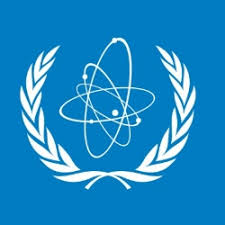RENFREW COUNTY — Three independent civil society organizations, the Canadian Association of Physicians for the Environment, the Canadian Coalition for Nuclear Responsibility and the Ottawa River Institute, are asking the Director General of the UN’s International Atomic Energy Agency (IAEA) to reconsider the recent appointment of a Canadian as chair of its commission on safety standards.
In a recent letter to IAEA Director General Rafael M. Grossi, signed by Dr. Gordon Edwards, Dr. Éric Notebaert, MD, and Dr. Ole Hendrickson, the authors say they are concerned about the appointment of Rumina Velshi, president of the Canadian Nuclear Safety Commission (CNSC), to chair the IAEA’s commission on nuclear safety standards because the organization she heads has a documented record of disregarding IAEA safety standards and advocating for exemption of smaller nuclear reactors from environmental assessment in Canada.
“We fear that Ms. Velshi’s chairmanship could result in the lowering of international standards, with an emphasis on benefits to the nuclear industry and support of ‘innovation’ at the expense of public protection,” says the letter.
According to the letter, Ms. Velshi might not meet the IAEA’s standards for regulatory officials’ independence from the nuclear industry. Before her appointment as CNSC president, she worked for Ontario Power Generation for eight years in senior management positions and led the OPG commercial team involved in a multi-billion dollar proposal to procure new nuclear reactors.
A published statement from the Canadian Nuclear Safety Commission dated February 26, 2020 says its president, Rumina Velshi, “intends to use her chairmanship to champion the importance of greater harmonization of standards and ensure they support nuclear innovation.” In a recent address to the Canadian Nuclear Association Ms. Velshi reiterated these sentiments.
The letter’s authors cite the final report of a recent IAEA review of Canada’s nuclear safety framework as evidence of the CNSC’s failure to meet IAEA safety standards. The review identified numerous deficiencies and found that “CNSC regulations do not comprehensively cover all IAEA Fundamental Safety Requirements.” The review also found Canada to be out of alignment with IAEA standards for nuclear reactor decommissioning.
“The CNSC is proposing to permit entombment and abandonment of very long-lived radioactive entrails of shutdown ‘legacy’ nuclear reactors as an acceptable strategy for decommissioning in Canada. This approach is expressly rejected by IAEA safety standards, except in emergency circumstances such as severe reactor accidents (i.e. meltdowns),” says Dr. Edwards, President of the Canadian Coalition for Nuclear Responsibility. “We are alarmed by this attempt of the CNSC to permit practices in Canada that the IAEA warns against and we don’t want to see this approach exported to the rest of the world.”
The letter to the IAEA Director General cites the CNSC’s handling of three controversial proposals for nuclear waste disposal as further evidence of the regulatory agency’s disregard of IAEA safety standards. The proposed facilities include: a giant, above-ground mound, close to the Ottawa River, for one million tons of mixed radioactive and other toxic wastes including long-lived radionuclides such as plutonium-239, americium-243, zirconium-93, nickel-59, carbon-14 and many more; as well as the planned entombment in concrete of two shutdown federal reactors beside the Winnipeg and Ottawa rivers, which provide drinking water for millions of Canadians.
The groups call on the IAEA director to maintain the integrity of IAEA safety standards and to continue to emphasize the vital importance of ensuring independence and objectivity, stating: “We value IAEA safety standards; at the moment they are all that is of an official nature standing between Canadians and three nuclear waste disposal projects that would adversely affect the environment and public health in Canada for generations.”
The letter notes that the CNSC is widely perceived to be a “captured regulator”, that prioritizes needs of the nuclear industry over protection of the public from radioactive pollutants released from nuclear facilities.







![Kenopic/Smith Auction [Paid Ad]](https://whitewaternews.ca/wp-content/uploads/2018/10/advertising-100x75.jpeg)

